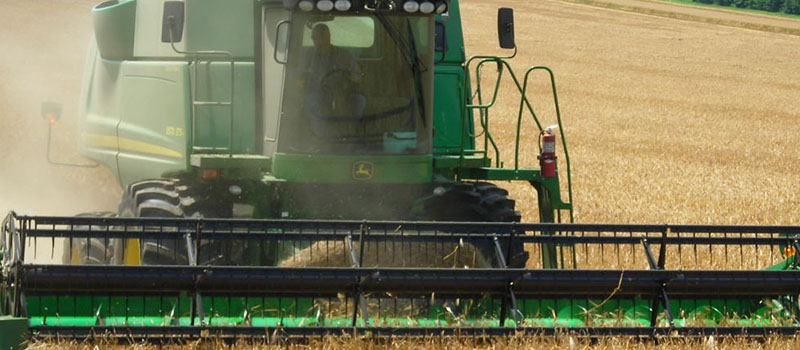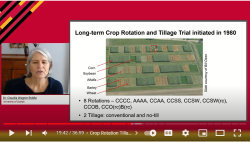
The Elora Research Station is one of the largest agricultural research farms in Canada, covering 2,310 acres. It is designed to support intensive research in crops, soils, beef and dairy. The facility is owned by Agricultural Research and Innovation Ontario and managed by U of G through the Ontario Agri-Food Innovation Alliance.
Research areas and outcomes
A variety of research programs use the 400-acre Ontario Crops Research Centre – Elora site. Breeding programs in cereals (wheat, barley, oats), corn, edible beans, soybeans, canola and forages have been present since the station’s establishment in 1969. Herbicide evaluation and development trials, forage and pasture management, potato, native flower and cole crop development, plus support for a variety of graduate student projects, occur on an ongoing basis. Additional research programs evaluate the effects of crop rotations on soil structure, crop performance and manure management.
See current research studies at the Ontario Crops Research Centre in Elora.
Hear from Dr. Claudia Wagner-Riddle, School of Environmental Sciences and Angie Straathof, Ontario Soil and Crop Improvement Association (OSCIA) about how the site facilitates research and benefits the agri-food sector.
Celebrating 40 years of crop rotation research at the Elora Research Station
It can take time to understand trends and see results. That’s where long-term research at Ontario’s agricultural research stations comes in. For decades, long-term trials at the Elora Research Station and Ridgetown Campus have generated evidence farmers can be confident in using to make decisions related to crop rotation, tillage systems and nitrogen management.
Working with Soils at Guelph, we have distilled four key findings about the importance of crop rotation and how it affects various on-farm outcomes including crop yield, resilience during dry years, nitrogen use efficiency and soil health into a series of key findings infographics to help crop advisors and farmers make on-farm decisions to remain competitive and sustainable. Visit Crop Rotation Counts: Key Findings from Long-Term Rotation Plot Research.
Manager: Dave Kells
dkells@uoguelph.ca

